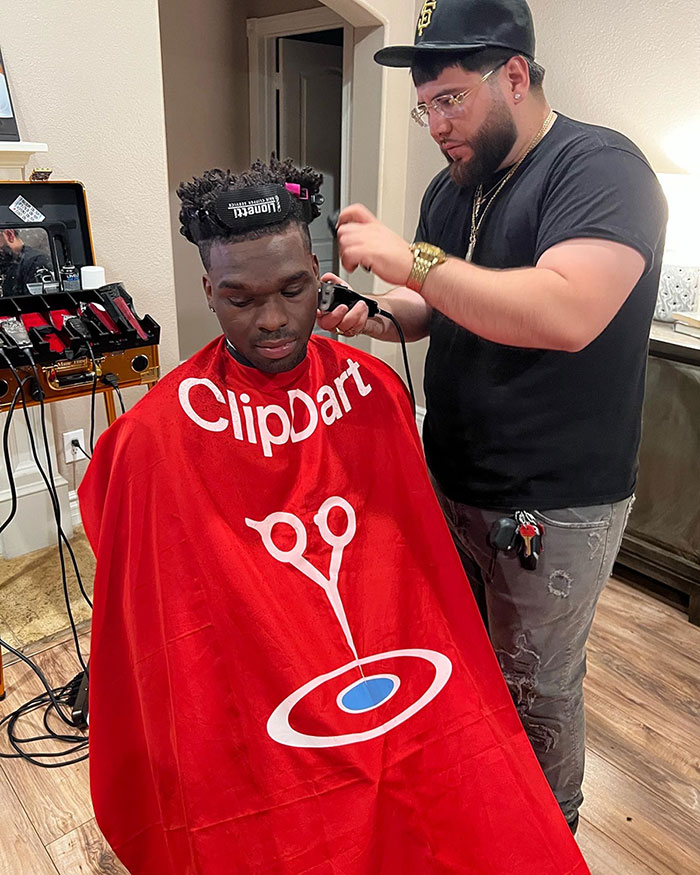
Political Playback: California Capitol News You Might Have Missed
Bo Tefu and Antonio Ray Harvey | California Black Media
California Legislative Black Caucus Elects New Leadership
On Aug.13, the California Legislative Black Caucus (CLBC) elected Assemblymember Akilah Weber (D-La Mesa) and Assemblymember Isaac G. Bryan (D-Ladera Heights) to serve as its next Chair and Vice Chair, respectively.
“The CLBC has a long-standing tradition of excellence in its ability to represent and advocate for the needs of Black Californians, a responsibility that I deeply care about,” Weber stated.
“As I begin my tenure as Chair, I am committed to ensuring that the CLBC upholds its exceptional legislative advocacy, strong partnerships, and exemplary programs as we focus on the major issues impacting our communities,” she continued.
In her new role as Chair, Weber replaces Assemblymember Lori Wilson (D-Suisun City) and Bryan succeeds Vice Chair Sen. Steven Bradford (D-Inglewood) who is termed out at the end of the current legislative session and announced that he is a candidate for Lt. Governor.
“I want to thank our immediate past leadership team for their unwavering commitment to lead during these past two years,” Wilson stated. “Together, we have been a powerful force, championing legislative policies and budget items with the purpose of enriching the lives of Black Californians. I look forward to working with our new leadership as we continue to work to uplift over two million Black residents living in California.”
Assemblymember Mia Bonta (D-Alameda) has been elected Treasurer and Assemblymember Corey Jackson (D-Moreno Valley) will serve as Secretary.
The newly elected officers will assume their two-year terms in December.
Assembly to Vote on Legislation That Will Require Equity in State Contractor Hiring

On Aug. 15, the Assembly Appropriations Committee voted 11-3 to pass a bill Sen. Lola Smallwood-Cuevas (D-Los Angeles) authored requiring state-funded contractors hired for large-scale infrastructure projects prioritize hiring “disadvantaged workers.”
Senate Bill (SB) 1340 now moves to the Assembly floor for a full vote.
During a rally on Aug. 13 in front of the State Capitol Smallwood-Cuevas said the bill would help ease the state’s “job crisis” – which only impacts Californians from underserved communities of color whose unemployment rates remain in the double digits.
For all Californians, the unemployment rate is relatively low at around 5.2%.
“We’ve been working on this issue, I would say, a good part of a decade, fighting for better opportunities for our communities to benefit from the investments of public dollars in our infrastructure (projects),” said Smallwood-Cuevas.
The passage of SB 1340 by the Assembly Appropriation Committee happened the same week that the Public Policy Institute of California (PPIC) released a report showing that Black Californians have the lowest employment rate in California’s top 10 occupations. Those professions include managers, truck drivers, registered nurses, customer service reps, teachers, construction workers, CEOs and legislators, among other fields.
Overrepresented at lower income levels, Black and Latino families consist at or below the 10th percentile while comprising 44% of all families in the state, the PPIC reported. For every dollar that White families earn, Asians make 95 cents, Black families earn 58 cents, and Latinos earn 52 cents.
“There should be equity and labor,” Smallwood-Cuevas said. “It’s not enough to pass a bill. It’s about implementation and intentionality.”
California Legislature Recognizes Black Girl Joy Day and HBCU Week

During the California Assembly floor session on Aug. 12, members of the California Legislative Black Caucus (CLBC) joined their colleagues in the Legislature to approve statewide recognition of Black Girl Joy Day last week and Historically Black Colleges and Universities (HBCUs) week next month.
Assembly Concurrent Resolution (ACR) 226, introduced by Assemblymember Lori D. Wilson (D-Suisun City) officially designated Aug. 10 as Black Girl Joy Day in California.
“This day is not just a celebration, but a profound acknowledgment of the vibrant roles that Black girls play in enriching our state’s diverse tapestry,” said Wilson.
“Black girls in California embody resilience, creativity and potential despite facing systemic challenges from a young age, including higher rates of school discipline and exposure to violence. They continue to make significant contributions across various fields,” added Wilson.
The Assembly voted 75-0 in favor of recognizing Black Girl Joy Day in California.
During that same floor session, the Assembly passed
Assembly Concurrent Resolution (ACR) 222 with a 76-0 vote.
ACR 222, introduced by Assemblymember Akilah Weber (D-La Mesa), officially designated the fourth week of September as Historically Black Colleges and Universities week in California.
“For hundreds of years Blacks were not allowed to attend American institutions of higher learning – not because we weren’t smart enough, but because of racism and segregation. So, we created our own institutions of higher learning,” said Weber, representing her alma mater, Xavier University, in a white and gold letterman cardigan.
Weber noted that although HBCUs represent only 3% of institutions of higher learning in the country, they produce 24% of Black STEM professionals.
Assemblymember Reggie Jones-Sawyer (D-Los Angeles) spoke about his experiences as a proud parent of Morehouse and Hampton graduates.
Assemblymember Tina McKinnor (D-Inglewood) shared her perspective as the daughter of a Prairie View A&M Graduate. Her mother relocated from Texas to Los California, where she was born.
“In September of 2023, President Biden proclaimed September 24th through 30th as national HBCU week, Weber continued. “In an effort to align with what has already been done on the federal level, I respectfully ask for your I-vote on ACR 222 to declare the fourth week of September as HBCU week.
Nvidia Announces Partnership WithCalifornia Black Media

Nvidia, the tech leader in artificial intelligence and the third largest corporation in the world — valued at around $3.06 trillion — announced last week that it is partnering with California Black Media (CBM) to create a critical resource that will support Black-owned newspapers in the state.
The same week, Nvidia, based in Santa Clara, also announced a partnership with the state that will train educators and students across California.
“The public-private collaboration supports the state’s goals in workforce training and economic development by giving universities, community colleges and adult education programs in California the resources to gain skills in generative AI,” the Nvidia statement read.
With CBM, Nvidia will “train a large language model on nearly a century of journalism by Black journalists in the state.”
“We are excited to collaborate with NVIDIA to empower publishers in our sector,” said Regina Wilson, Executive Director of CBM. “This partnership places the Black Press at the forefront of journalism and technology, unlocking innovative opportunities that will drive the future of our industry.”
Gov. Newsom Signs New Laws Strengthening State’s Crackdown on Organized Retail Crimes
On Aug. 16, Gov. Gavin Newsom signed a package of 10 bills aimed at strengthening the state’s ability to prosecute people involved in organized retail crimes.
According to Newsom’s office, “the new laws provide tougher criminal penalties for repeat offenders and additional tools for felony prosecutions.”
“Let’s be clear, this is the most significant legislation to address property crime in modern California history,” said Newsom speaking at a news conference in San Jose.
“I thank the bipartisan group of lawmakers, our retail partners, and advocates for putting public safety over politics.”
Among other infractions, the news laws cover smash-and-grabs, sale of stolen property and car break-ins.
Earlier in the week, Newsom announced that the state’s Organized Retail Crime Task Force (ORCTF) has recovered stolen goods worth more than $7.2 million and has made 884 arrests since the beginning of the year.
The ORCTF’s efforts have led to a 212% increase in criminal investigations statewide. These investigations have led to a 106% increase in arrests in recent months.
Since 2019 when Newsom first appointed the task force, the state has invested over $1.1 billion to fight crimes and bolster local law enforcement efforts in communities across the state. This included an allocation of over $267 million across 55 cities and counties to hire more police and invest time and resources in more criminal investigations to make arrests and file felony charges against suspects.
Some of that funding was allotted last year as part of the governor’s Real Public Safety Plan, partnering with police and sheriff’s departments and district attorney offices to curb organized retail theft.
“The state’s Organized Retail Crime Task Force is responding readily and at record pace to crack down on organized criminals attempting to rip off California’s storefronts — demonstrating a continued commitment to enforcing public safety and protecting our communities,” said Newsom.
The task force helped the California Highway Patrol (CHP) make over 2,900 arrests and seize more than $45 million worth of stolen property since 2019 when it was first created.
Sean Duryee, the commissioner of the CHP, said that pursuing organized retail crime has yielded significant results each month.
“Through targeted investigations and numerous arrests, we are actively disrupting and dismantling these crime rings that threaten our communities and businesses,” said Duryee.
“Our message is clear: we will not allow organized retail crime to go unchecked in California,” he said.
The task force’s special operations and anti-crime initiatives have helped remove guns and drugs off the streets in hot spots such as Oakland, Bakersfield, and San Francisco with the backing of CHP officers, Newsom office stated.
California Retailers Association (CRA) President and CEO Rachel Michelin joined the Governor at the bill signing, along with Attorney General Rob Bonta, Assembly Speaker Robert Rivas (D-Hollister), Senate Pro Tempore Mike McGuire (D-Healdsburg), and other officials.
“These bills’ swift movement through the state Legislature and into law make it clear that retail theft policy priorities have shifted this year,” wrote Michelin on Facebook.
“This seismic shift is a testament to the California Retailers Association team’s strategic and persistent work with state leadership including the Governor’s office, Speaker’s office, Senate Pro Tempore, various members of the legislature and other key stakeholders to ensure the safety of our customers, stores and neighborhoods in which we operate in,” she added.
Sec. of State Weber Releases Voter Registration Report
So far, 82% of eligible voters in California registered to vote in the November general election, Secretary of State Shirley N. Weber announced last week.
The voter registration report states that over 22 million voters have registered to vote, a slight decrease in the total number of voters that registered in the previous general in 2020. According to state data nearly half of the voters registered as Democrats, approximately 46%, as compared to nearly 24% who identified as Republican.
The report covers a period of 123 days, ending on July 5.
A growing number of voters selected that they had no party preference. Over 24 percent of voters preferred neither party.
Last month, Weber announced that the state mailed vital information to every voting household about the general election, including candidate statements. The state also provided information regarding the Voter Bill of Rights and official voter guide available in 10 languages including English, Spanish, Chinese, and Hindi, among others.
According to state data from all 58 counties, political affiliation varied by county revealing that the Democratic Party had a slight lead in major counties. The counties with the highest number of registered Democrats include San Francisco, Marin, Santa Cruz, and Alameda counties. While counties such as Lassen, Modoc, Shasta, and Tehama had the highest number of Republicans registered to vote.
Weber has pushed back on misinformation and conspiracy theories about the vote-counting process following the county election earlier this year. Weber’s office clarified that election results would be finalized 38 days after election day to certify the results.
“Doing it right takes precedence over doing it fast,” said Weber.
“The time taken to process ballots ensures voters’ rights and the integrity of the election,” she said.
In Letter, Atty Gen. Bonta Steps Up Fight Against Medical Debt Reporting
Attorney General Rob Bonta backed a newly proposed rule that prohibits the reporting of medical debt on credit reports, in a letter to the Consumer Financial Protection Bureau (CFPB) Director Rohit Chopra.
The proposed rule aims to relieve millions of people bridled with unexpected or inaccurate medical bills.
Bonta, along with several state lawmakers, is sponsoring Senate Bill (SB) 1061, a law that would prevent medical debt from being included on credit reports, protecting consumers from those outstanding charges damaging their creditworthiness.
The bill is authored by Sen. Monique Limón (D- Santa Barbara) and Sen. Josh Becker (D-Menlo Park).
Bonta acknowledged the consumer bureau for spearheading the initiative and providing stronger protections that relieve consumers of the burden of medical debt.
“When someone is scared and in pain, the last thing they should think about is whether seeking care will take away their ability to buy a house or land a job. Unfortunately, this is the reality for many people today,” said Bonta.
“There is no need for medical debt to appear on credit reports as it is not a good predictor of repayment, and it pushes more and more people into a harmful debt cycle that is very difficult to escape,” he said.
In support of the proposed rule, consumer advocacy organizations argue that medical debt is an unreliable indicator of financial risk. As a result, consumers with medical debt are prevented from qualifying for loans, renting an apartment, or securing a job. Consumer advocates stated that the healthcare system is broken and has affected many families nationwide.







